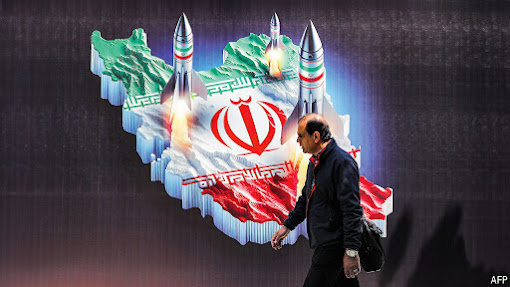Current Tensions Between Israel, USA, and Iran: The Atomic Bomb Experiment Controversy
Current Tensions Between Israel, USA, and Iran: The Atomic Bomb Experiment Controversy
The geopolitical situation in the Middle East involves complicated interrelationships and prolonged tensions. In recent history, these tensions have escalated dramatically as Iran's controversial nuclear program has been perceived by many as posing an imminent threat to regional stability and international security. Current dynamics between Israel, the US, and Iran over nuclear proliferation are critical to understanding the current situation.
Background: Iran's Nuclear Ambitions
Iran has been on the international hot list since the early 2000s over its nuclear program. Tehran has been claiming that all the nuclear activities in the country are for civilian purposes, including energy production and medical research. However, many of the Western nations, mainly the United States and Israel, have been very skeptical about those claims, suspecting that Iran may be building its nuclear weapons development capabilities.
The Joint Comprehensive Plan of Action (JCPOA) in 2015 had set out a historic agreement aimed at limiting Iran's nuclear program in exchange for lifting of economic sanctions. The agreement did not go without its difficulties, though, and was unilaterally withdrawn from by the Trump administration in 2018 and severe sanctions reinstated on Iran. The last straw was responded to with Iran gradually rolling back their compliance with the agreement, continuing to escalate tensions.
Recent Developments
1.Iran's Nuclear Progress:
In fact, recent claims say Iran has actually been boosting its nuclear program. Further, the IAEA recently confirmed that Iran has actually enriched uranium to levels almost weapons-grade. It set off alarms as it is at such a level where a bomb would be developed at about 90% enrichment levels. Iranian uranium enrichment levels reportedly came above 60% as of October 2024-a level that is raised alarm among both Israel and the U.S.
2.Israeli Concerns
Israel considers that a nuclear Iran will eventually pose an existential threat to it. The Israeli government has been vociferous against the nuclear programs of Iran, and the country has conducted military operations that have targeted Iran's nuclear facilities. Israeli officials have announced their stance stating that Iran cannot have nuclear weapons, and they have chosen to place all options, including military action, on the table.
The latest statements from Israeli Prime Minister Benjamin Netanyahu have called for the country to prevent Iran from becoming a nuclear state. Israel has developed its military prowess, and the threatening speech on carrying out preventative attacks on Iranian nuclear installations has been an open discussion between militaries and politicians alike.
3.U.S. Position and Diplomatic Efforts
The Biden administration has attempted so far to revive the JCPOA, believing that negotiations are required to prevent Iran from acquiring nuclear weapons. Its efforts have derailed because of the marching pace at which Iran is pacing toward its nuclear achievements and being aggressive and all other actions in the region, supporting militant groups in Lebanon and Syrian territories.
Much more recently, the United States has finally officially stated it supports Israel's right to defend itself against threats such as military cooperation and sharing of intelligence. In direct contrast, however, is a growing concern by the government of the United States about Iran's potential attack on Israel and repercussions of this action for the nation including its role in the regional outbreak of violence.
4.Iran's Response
Iran hardened its nuclear stance and ratcheted up its rhetoric against both the United States and Israel at rising pressure. Iranian officials insist that the nuclear project is necessary for the achievement of national sovereignty and national defense. It also threatened retaliation if Israel takes any military measure and declared that it will unleash extreme consequences at the expense of both Israeli and American interests in the region in case of military strikes launched against it.
The risks of escalation
The situation is highly dangerous now. A military strike by Israel on Iran's nuclear installations might trigger an extremely massive military revenge by Iran, which could increase the conflict to the whole region of the Middle East. This will encompass not only large-scale attacks against Israel but also probable attacks on U.S. military installations in the region or the ignition of proxy forces aligned with Iran, including Hezbollah in Lebanon and different militias in Iraq and Syria.
Further, the U.S. is still caught between a rock and a hard place. On one hand, it wants Iran not to achieve nuclear capabilities, and on the other hand, it doesn't want to get into a head-on military conflict with the country that will ignite the entire region and drag in the rest of global powers.
Conclusion
International relations' most telling flash points are those involving tensions around Israel, the U.S. and Iran, with their nuclear program. The Iranian process continues with improvements that might eventually allow it to develop into a nuclear weapons state, raising the stakes for all sides.
Diplomatic attempts to breathe life into the JCPOA may be a passage toward de-escalation; however, suspicion between the involved countries continues to weigh on the hopes for meaningful talk. In the coming months will be crucial as to know whether prospects are open for diplomacy or whether military options stay in line with the response options against Iranian nuclear aspirations.
The international community should, therefore, keenly monitor the changes taking place and advocate peaceful solutions to the place that will ensure stability and security in the Middle East. Failure to do so will unleash the most devastating consequences, not only on that region but the whole world.




Comments
Post a Comment